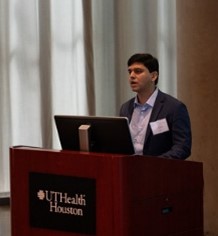Geroscience – Funding Opportunities
Harry E. Bovay, Jr. Foundation Pilot Grants Program
The Harry E. Bovay, Jr. Foundation Endowment for Aging Research and Education is committed to advancing interdisciplinary research and education across UTHealth Houston. Its goals include enhancing collaboration among faculty members from different disciplines and fostering the development of translational research initiatives.
In alignment with these goals, the UTHealth Houston Institute on Aging is pleased to announce a competitive funding opportunity for junior faculty members (at the Instructor and Assistant Professor levels) at UTHealth Houston. This competition will award $15,000 for first place, $10,000 for second place, and $5,000 for third place. These grants are intended to support pilot studies in aging research and are aimed at faculty who have not previously received support through this program. The primary objective of these awards is to provide preliminary funding for aging-related research, enabling researchers to develop their projects and enhance their prospects for securing larger extramural grants.
2025 Proposal Due Dates: To Be Announced
2024 Awardees:
 Danesh Sopariwala, PhD: Awarded $15,000 for his project titled “Mitigation Of Age-Related Decline In Muscle Function By Targeting Estrogen-Related Receptor Gamma.” Sopariwala’s research offers promising insights into preserving muscle function as we age, potentially improving the quality of life for older adults.
Danesh Sopariwala, PhD: Awarded $15,000 for his project titled “Mitigation Of Age-Related Decline In Muscle Function By Targeting Estrogen-Related Receptor Gamma.” Sopariwala’s research offers promising insights into preserving muscle function as we age, potentially improving the quality of life for older adults.
 Fadi Musfee, MD, PhD: Awarded $10,000 for his project, “The Early Structural and Cognitive Changes in The Brain Among Hispanic/Latino Individuals in The Cameron County Hispanic Cohort.” Musfee’s work highlights the unique cognitive changes seen in specific populations, which could inform early interventions.
Fadi Musfee, MD, PhD: Awarded $10,000 for his project, “The Early Structural and Cognitive Changes in The Brain Among Hispanic/Latino Individuals in The Cameron County Hispanic Cohort.” Musfee’s work highlights the unique cognitive changes seen in specific populations, which could inform early interventions.
 Pooja Shivshankar, PhD: Awarded $5,000 for her project, “Role of Complement Anaphylatoxins in Helper T-Cell Dysfunction in Inflammaging.” This research focuses on the immune system’s role in the aging process, specifically how certain proteins may contribute to age-related inflammation.
Pooja Shivshankar, PhD: Awarded $5,000 for her project, “Role of Complement Anaphylatoxins in Helper T-Cell Dysfunction in Inflammaging.” This research focuses on the immune system’s role in the aging process, specifically how certain proteins may contribute to age-related inflammation.
